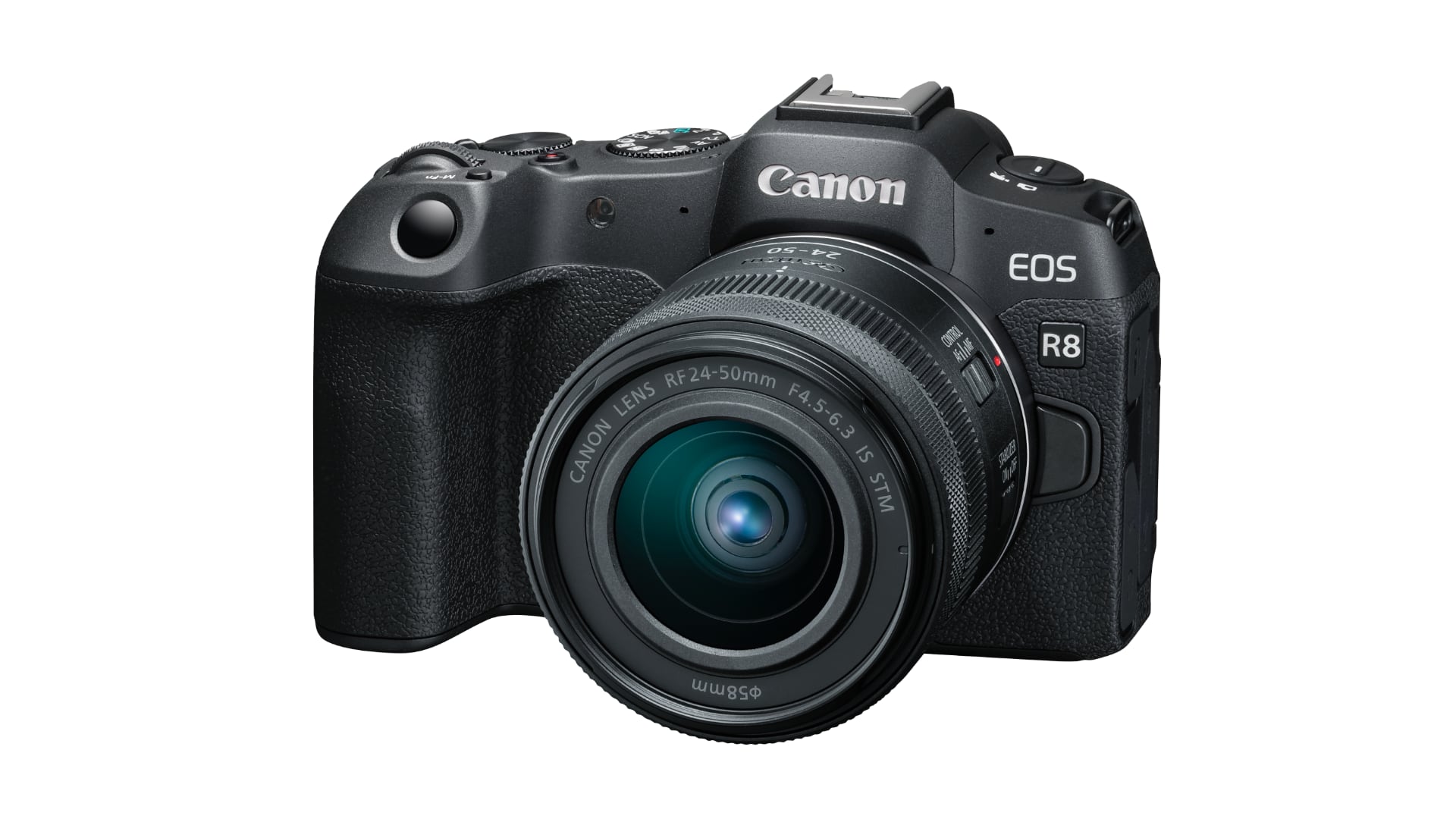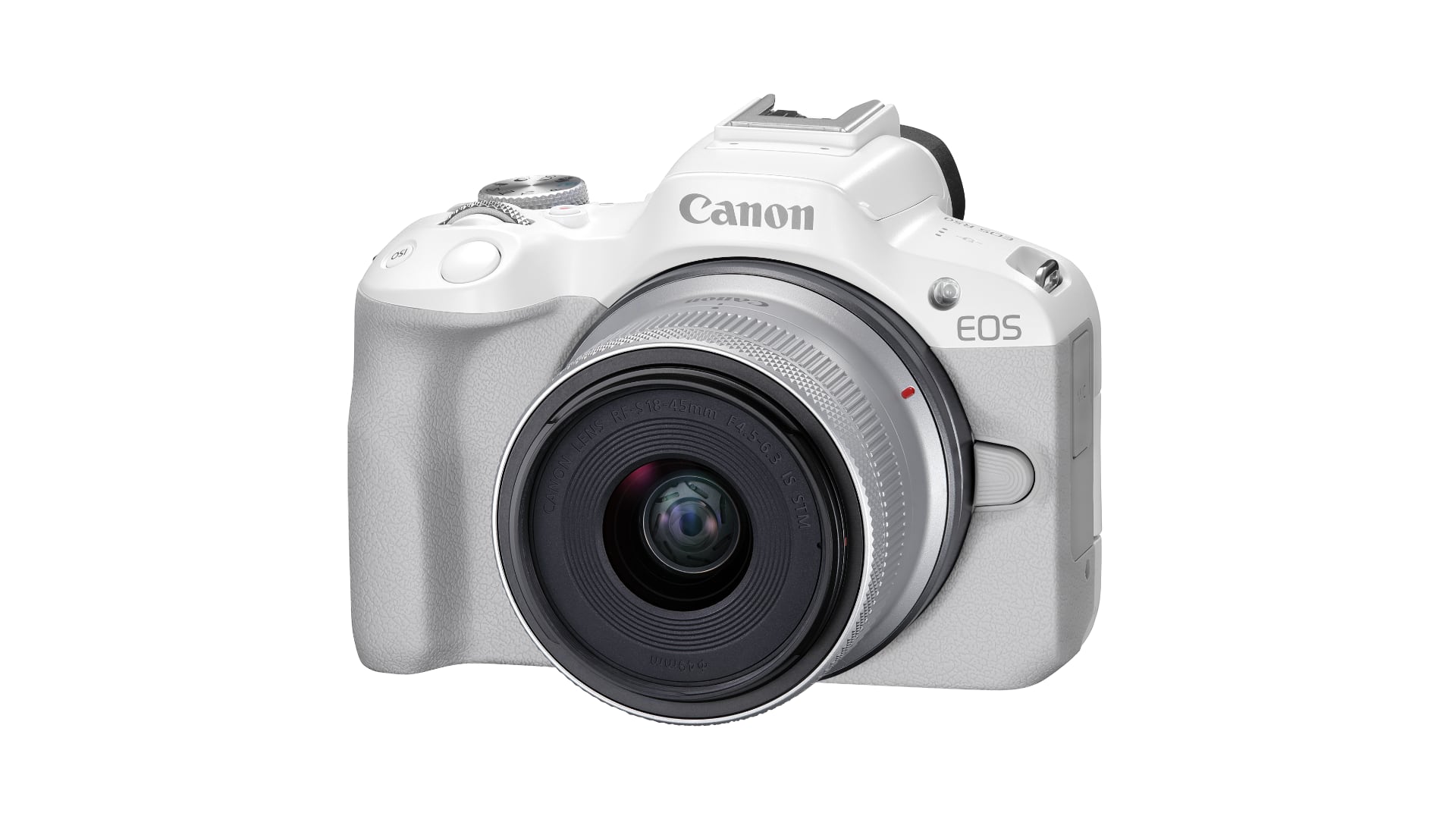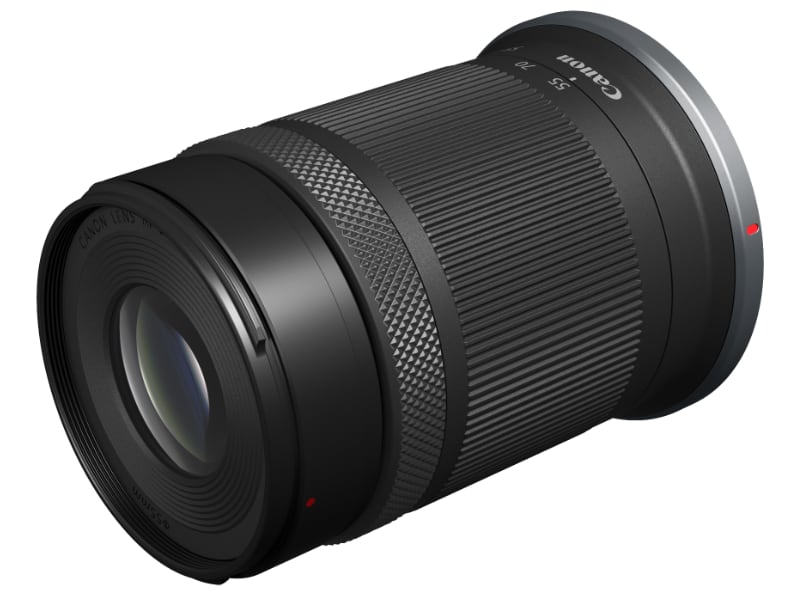
Not one but two new mirrorless cameras from Canon, as well as a couple of new lenses to further bolster the R-mount lineup.
Canon’s filling in the few gaps that remain in its mirrorless lineup, with two new cameras due this spring that include features that overlap with others already exist in the range.
The EOS R8 is billed as being both affordable and functional, and at first glance looks to live up to both those labels. It’s based around a 24.2-megapixel CMOS image sensor and DIGIC X image processor, and has been optimised for full-frame RF lenses — allowing enhanced wide-angle field of views when compared to APS-C sensor cameras. It’s essentially very similar to the EOS R6 MkII.
The camera can shoot at up to ISO 102,400 (extendable to ISO 204,800), while its Dual Pixel CMOS AF II focusing is sensitive to -6.5EV. It can shoot continuously at 40 fps using its electronic shutter, while a 30 fps Raw burst mode will capture frames up to 0.5 sec before the shutter release is pressed.

The EOS R50 is also available in a fairly eye-catching white
The EOS R50 meanwhile is around half the price and an entry level APS-C mirrorless hybrid featuring 4K video, uncropped 4K capture (at all frame rates), and Dual Pixel CMOS AF technology. With the addition of whole area tracking, subject detection, and movie-prerecording, difficult photo and movie opportunities can be easier to capture with a 24.2-million-pixel, APS-C sized image sensor.
Interestingly it will be available later in 2023 as part of a Content Creator Kit – packaged with a microphone, lens and grip.
As we said, there’s a lot of overlap in the range and enough that we can pretty much lump the two new camera’s video performance together. In short we get:
- Uncropped 4K video to 59.94p (29.97p with EOS R50) (with 6k oversampling)
- Full-HD to 59.94 fps, and High Frame Rate to 119.8 fps (Full HD 180p with the EOS R8)
- Dual Pixel CMOS AF, with subject detection for people, animals and vehicles
- Up to 2 hours of continuous recording (one hour with EOS R50); no 30 min limit
- Focus breathing correction
There’s also vertical video metadata, a movie self timer, audio noise reduction (though this is only in the EOS R8), UVC/UAC support for USB livestreaming, recording emphasis, and aspect markers.
Pricing is $1499 or equivalent for the EOS R8 camera body and $679 or equivalent for the EOS R50.
New R-mount lenses

The new RF-S55-210mm F5-7.1 IS STM
Alongside the camera bodies, Canon is also releasing two new lenses. The RF-S lens line, optimized for the smaller APS-C sensor size, expands with the Canon RF-S55-210mm F5-7.1 IS STM lens, a telephoto zoom, giving coverage equivalent to an 88–336mm lens on a full-frame camera. It features 4.5 stops optical image stabilization, and close-focusing that can fill the frame with a subject roughly 2x3 inches in size (at its 210mm zoom setting, and minimum focus distance).

The RF24-50mm F4.5-6.3 IS STM
The Canon RF24-50mm F4.5-6.3 IS STM, meanwhile, is a new, compact standard zoom lens for full-frame EOS R-series cameras. Ranging from true wide-angle to traditional “standard lens” coverage at 50mm, the lens is a travel friendly design with an extremely compact exterior. The RF24-50mm F4.5-6.3 IS STM lens is just over 2 inches long when fully retracted, and under 3.5 inches when extended — weighing less than half a pound. Optical Image Stabilization, with 4.5 stops of shake-correction, further enhances appeal for video and still-image shooting. It’s also useable on an APS-C sensor Canon camera, where the lens' effective coverage is equivalent to what a 38–80mm would deliver on a full-frame camera.
The RF24-50mm F4.5-6.3 IS STM lens will be available for an estimated retail price of $299 while the RF-S55-210mm F5-7.1 IS STM lens will have an estimated retail price of $349. As with the cameras, they are due to be available this spring.
Tags: Production


Comments